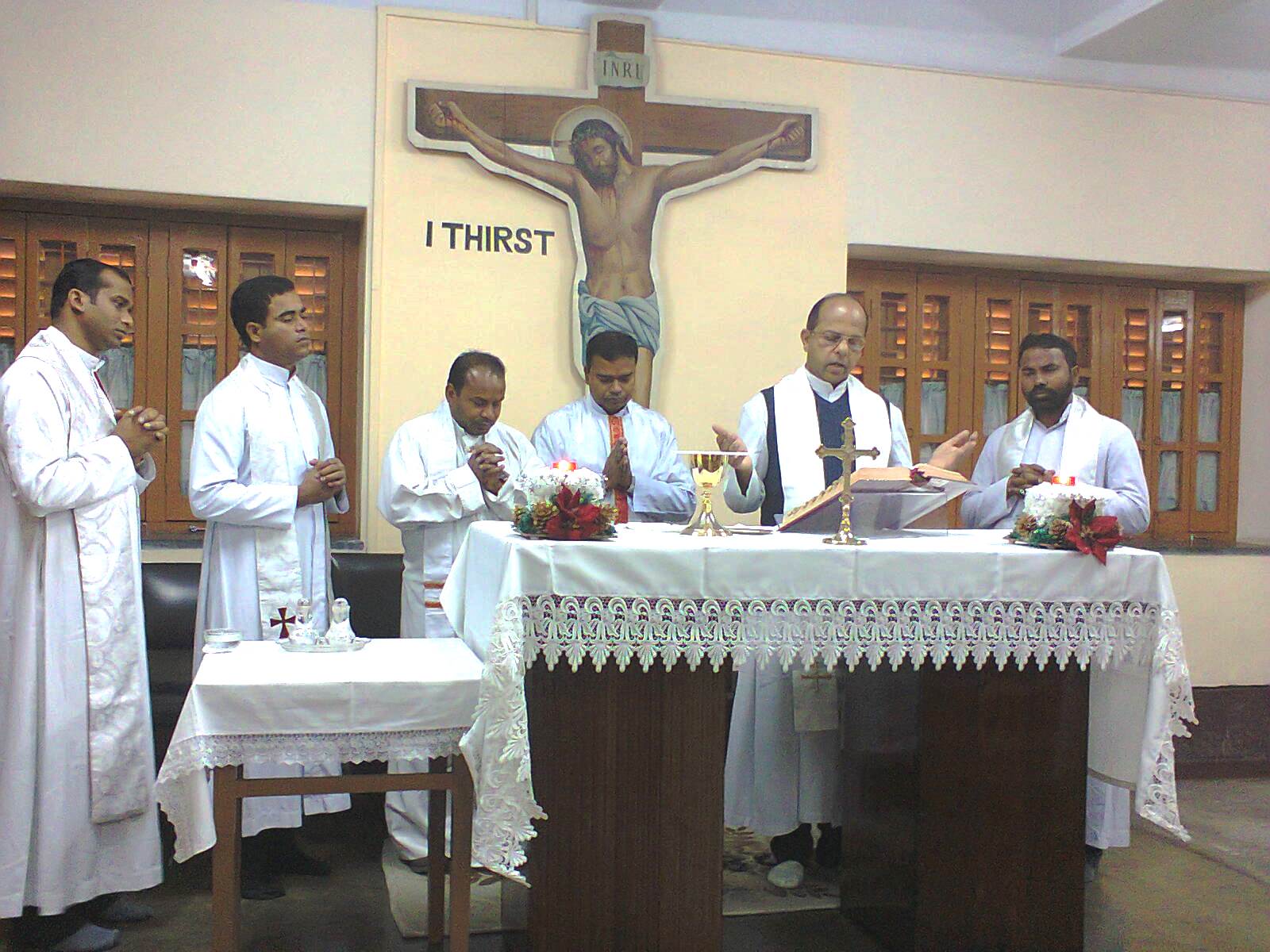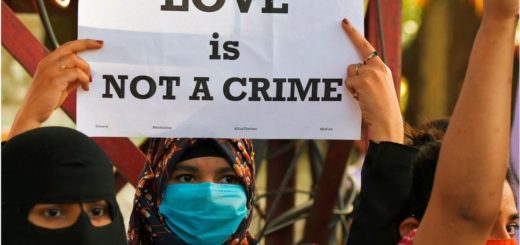4-day Workshop on Social Communications, at Nitika, Kolkata.

ISAAC HAROLD GOMES, ICPA – KOLKATA
To commemorate the completion of 50 years of the publication of Inter Mirifica, the Vatican II document on Social Communications and the 10th anniversary of the CBCI Plenary meeting, which led to the publication of the Pastoral Plan for Social Communications in India, the CBCI Office for Social Communications organized a 4-day Workshop for Diocesan Directors of Social Communications at Nitika Don Bosco, Kolkata, 7-10 January, 2015. The undersigned represented Calcutta Archdiocese.
Fr. George Plathottam, Secretary, CBCI Office for Social Communications, was the key speaker. Other resource persons were Fr. Antony Earathara, Fr Robin Gomes, Sunil Lucas, President-Signis India and Farrell Shah, Website and Media Expert.
Through Power Point presentation Fr George showed that Vatican II documents Inter Mirifica (1963), Communio et Progressio (1971) and Aetatis Novae (1992), make it abundantly clear that the Church has given great importance to Social Communications i.e. all forms of communication – from storytelling, rumour, drama, dance and music to print and electronic media including the internet, blog and tweeter. Church‟s mission is to Evangelize and a large part of that is Communication.
Jesus Christ and Mother Teresa were great communicators. They spoke from the heart. According to Pope St. John XXIII “The language of the Heart is more important than any language of the Words….”
The primary stress of the Workshop was on making a Plan for Social Communications in all dioceses where the common problems are:
• Directors of Social Communications do not know their role.
• There is no Job Description (JD)
• Many dioceses do not have a Director or a Pastoral Plan for Social Communications.
![]() The immediate need is for Diocesan Commissions to discuss, strategize and make realistic pastoral plans.
The immediate need is for Diocesan Commissions to discuss, strategize and make realistic pastoral plans.
• Church Authorities did not understand Communication Dimension of all Ministries of the Church
• Professional training and formation for production and reception of the media and the importance of media education (competence) – an important demand which is not being followed up
• Diminishing interest in Institutional Church / Migration to Other Church due to people‟s problems being ignored
• Church’s failure to understand that Communication today is no more on-way and has become two-way street.
• Church’s shying away Digital World, openness and criticism.
![]() Pope Francis exhorted the laity not to be afraid and to be bold and courageous.
Pope Francis exhorted the laity not to be afraid and to be bold and courageous.
• Lack of transparency and accountability
![]() Church’s operational success hinges on its credibility.
Church’s operational success hinges on its credibility.
![]() In view of possible application of RTI on Churches, there is an urgent need for transparency in receipts and payments in all church dealings including need for consultation with sponsors.
In view of possible application of RTI on Churches, there is an urgent need for transparency in receipts and payments in all church dealings including need for consultation with sponsors.
• Lack of Church personnel trained in Social Communications
• Very poor Public Relations (PR) and Crisis Management Team.
• Lack of media education (competence)
• Lack of knowledge of indirect evangelization through use of Social Communications
• Absence of an office space and budget allocation for Social Communications
• Absence of a good data bank on professionals and important contacts
• Tendency to sweep all matters, particularly critical ones, under the carpet, without realizing that every problem has the potential to become a crisis and an opportunity (Chinese term Crisis as an Opportunity)
![]() Set up a mechanism to get early warnings of smouldering crises and address them. A minor problem may escalate into a crisis if not brought under control.
Set up a mechanism to get early warnings of smouldering crises and address them. A minor problem may escalate into a crisis if not brought under control.
• Blurring of Catholic Identity (priests included)
For a turnaround, he suggested the following steps:
![]() Creation of a website for each Diocese and separate e-mail ID for each parish (different from parish priest‟s e-mail) and hosting them on the diocese website.
Creation of a website for each Diocese and separate e-mail ID for each parish (different from parish priest‟s e-mail) and hosting them on the diocese website.
![]() Promotion of proper programmes in communications for all leaders of the community – bishops, priests, religious and lay leaders so that they can effectively discharge their duties for evangelization and defence of the genuine interests of the Church and society.
Promotion of proper programmes in communications for all leaders of the community – bishops, priests, religious and lay leaders so that they can effectively discharge their duties for evangelization and defence of the genuine interests of the Church and society.
![]() Need for Church personnel to be polite.
Need for Church personnel to be polite.
![]() To motivate all Church personnel to actively participate in the new opportunities created by the social media and theinformation technology (e.g. smart phone, facebook, twitter, web TV) to share the Good News.
To motivate all Church personnel to actively participate in the new opportunities created by the social media and theinformation technology (e.g. smart phone, facebook, twitter, web TV) to share the Good News.
![]() To act as a watchdog on media issues (what is published should be noted and suitably responded).
To act as a watchdog on media issues (what is published should be noted and suitably responded).
![]() To assist other church commissions e.g. Education, Health and Youth in providing communications component in their respective fields.
To assist other church commissions e.g. Education, Health and Youth in providing communications component in their respective fields.
![]() Identification and encouragement of creative young talented persons to pursue a career in the media, in various Indian institutions offering short and long term training.
Identification and encouragement of creative young talented persons to pursue a career in the media, in various Indian institutions offering short and long term training.
![]() Sensitising Church personnel to promote a culture of communication through interaction, consultation, participation and collective action.
Sensitising Church personnel to promote a culture of communication through interaction, consultation, participation and collective action.
![]() Making the church periodicals, websites, newsletters, and notice-boards – channels of interactive (two-way traffic) communication.
Making the church periodicals, websites, newsletters, and notice-boards – channels of interactive (two-way traffic) communication.
![]()
![]() Training clergy, seminarians, religious and other church personnel in communication skills and media education e.g. behaviour in front of a camera and learning how to deal with the media.
Training clergy, seminarians, religious and other church personnel in communication skills and media education e.g. behaviour in front of a camera and learning how to deal with the media.
![]() Evolving an action plan to manage communications in the event of a crisis (management, aftermath and recovery).
Evolving an action plan to manage communications in the event of a crisis (management, aftermath and recovery).
![]() Avoid use of “no comments” and “off the record”.
Avoid use of “no comments” and “off the record”.
![]() Mock sessions and analysis of crisis situations handled in the past can be helpful for development of skills in this area.
Mock sessions and analysis of crisis situations handled in the past can be helpful for development of skills in this area.
![]() When necessary, to protect individuals (sensitive witnesses /victims) from media glare.
When necessary, to protect individuals (sensitive witnesses /victims) from media glare.
![]() Periodic checking and upgrading of communication technology and equipment (telephone, e -mail, etc.) for better communication network in the archdiocese.
Periodic checking and upgrading of communication technology and equipment (telephone, e -mail, etc.) for better communication network in the archdiocese.
![]() Identification, training and appointment of PRO for Diocese and also for institutions.
Identification, training and appointment of PRO for Diocese and also for institutions.
![]() Association with local Christian media professionals and other like-minded persons / institutions.
Association with local Christian media professionals and other like-minded persons / institutions.
![]() Training of youngsters in each parish in print media and in bringing out parish newsletter
Training of youngsters in each parish in print media and in bringing out parish newsletter
![]() Cultivating good relations with media persons, inviting them now and then, for a friendly dialogue and fellowship.
Cultivating good relations with media persons, inviting them now and then, for a friendly dialogue and fellowship.
![]() Initiating media awards for outstanding media persons and recognising talents in various other fields during one’s lifetime – not during obituary.
Initiating media awards for outstanding media persons and recognising talents in various other fields during one’s lifetime – not during obituary.
![]() Organizing media seminars for sensitizing/ upgrading skills of media professionals.
Organizing media seminars for sensitizing/ upgrading skills of media professionals.
![]() Interaction with media persons, social activists and social thinkers to foster amity.
Interaction with media persons, social activists and social thinkers to foster amity.
![]() To make media education inbuilt in the curriculum of all formation houses and educational institutions. This can be a part of moral education class in schools.
To make media education inbuilt in the curriculum of all formation houses and educational institutions. This can be a part of moral education class in schools.
![]() To advance advocacy to uphold dignity and human rights of all, particularly the marginalized by creating public opinion through media productions on human rights & human dignity, defending the rights of media professionals in the freedom of expression and networking with members of other churches, media professionals of other faiths and NGOs
To advance advocacy to uphold dignity and human rights of all, particularly the marginalized by creating public opinion through media productions on human rights & human dignity, defending the rights of media professionals in the freedom of expression and networking with members of other churches, media professionals of other faiths and NGOs
![]() To discern the Fruits of the Digital Age and recognize the technologies which can actually improve our life – we use technology more wisely when we recognize how it affects our lives.
To discern the Fruits of the Digital Age and recognize the technologies which can actually improve our life – we use technology more wisely when we recognize how it affects our lives.
![]() To organize a Trainers‟ Team to impact media education.
To organize a Trainers‟ Team to impact media education.
![]() To respond effectively through write-ups, letters to the editor etc. to issues concerning the community and to build public opinion.
To respond effectively through write-ups, letters to the editor etc. to issues concerning the community and to build public opinion.
![]() To improve the catholic periodicals, publications and media productions by bringing in more professionalism to make them truly communicative (laity‟s viewpoint) and financially viable.
To improve the catholic periodicals, publications and media productions by bringing in more professionalism to make them truly communicative (laity‟s viewpoint) and financially viable.
![]() Periodically conduct feedback/surveys to identify people‟s communication needs and to assess the effectiveness of church’s communication work
Periodically conduct feedback/surveys to identify people‟s communication needs and to assess the effectiveness of church’s communication work
![]() To develop alternative (traditional) media such as folk arts, puppet show, dance, drama, music, kirtan, Jaatra, streetplays, Christmas cribs, Passion scenes etc. to reach out to the least of the society.
To develop alternative (traditional) media such as folk arts, puppet show, dance, drama, music, kirtan, Jaatra, streetplays, Christmas cribs, Passion scenes etc. to reach out to the least of the society.
![]() To celebrate the „World Communications Day‟ meaningfully in all parishes and to translate & disseminate through the secular media Pope‟s message for the day to the grassroots.
To celebrate the „World Communications Day‟ meaningfully in all parishes and to translate & disseminate through the secular media Pope‟s message for the day to the grassroots.
![]() To work out the means of obtaining and maintaining financial support for the pastoral plan for Social Communications, with the help of local parishioners, institutions and individuals.
To work out the means of obtaining and maintaining financial support for the pastoral plan for Social Communications, with the help of local parishioners, institutions and individuals.
![]() To allocate, under the supervision of Archbishop, the World Communications Day Collection from all parishes, among Archdiocesan Social Communications, Regional Communications Commission and the CBCI Commission for Communications, as per prevailing norms.
To allocate, under the supervision of Archbishop, the World Communications Day Collection from all parishes, among Archdiocesan Social Communications, Regional Communications Commission and the CBCI Commission for Communications, as per prevailing norms.
![]() To give office space and issue Appointment Letters with job description to Social Communications Director and to other officials to do away with miscommunication among different ministries / commissions.
To give office space and issue Appointment Letters with job description to Social Communications Director and to other officials to do away with miscommunication among different ministries / commissions.
![]() To create a database of professionals and important connections and establish a Think Tank.
To create a database of professionals and important connections and establish a Think Tank.
Fr. Antony Earathara lucidly explained the different social media (Wikipedia, Facebook, Twitter, You Tube, Google+, Pinterest and Instagram, Spiritual Apps and Real Time Streaming of important events through Skype and Web TV. He also named a few websites for spiritual enrichment e.g. epriest.com for Homily Packs, Reflections and Best Practices, goodnews.in, kentcrockett.com (for Gospel stories and sermon illustrations), familyrosary.org, (for devotional prayer), etc.
Fr Robin spoke on social communications through the Radio where one has to be a good communicator. He said the Radio was both a mass and a personal media. He mentioned of Vatian Radio and TV and Radio Veritas Asia and said the language should be at today’s parlance and youth-oriented in style & message packaging. He emphasized that priests need training to tone up their style of sermon (which cannot be pre-Vatican) and limit it to 7-10 minutes as per international norms, failing which the audience would lose interest. On being asked the cost of a small (6×8 ft studio), he said it would be between 15 and 20 Lac (INR).
Sunil Lucas gave a brief on Signis, which is a network of Christian Communicators, supports global initiatives on „Communication for Peace‟ and promotes joint initiative for co-production, marketing and building a digital database for audio-visual resource materials. It is the only Catholic worldwide media recognized by the Vatican. He also talked of ongoing synergy with Indian Catholic Press Association (ICPA) for common programmes, award functions, etc. ICPA founded in 1963, is a national forum of Catholic newspapers, periodicals, news agencies, publishing houses, editors, journalists, and teachers of journalism. Communications technology was no more one-way and it was a challenge for the Church to make it two-way. He said Church workers should be trained in new media, be supported, appreciated and suitably remunerated. That is social justice, to treat people professionally. He said that there was a leap-frogging of communications culture – from digital migrants to digital natives (today’s children) who like to have information on their fingertips. In such a scenario, non engagement by priests and bishops in social communications would create a Communication Divide.
Farrell Shah gave an overview of the internet which could be an excellent tool for evangelization. However, as Pope Francis said, it has to be close to people’s heart, inspire Catholics and the world in general, without b eing preachy and reams of information which most of our dioceses are. He said Diocesan Websites need to be interactive, answer queries and be updated as things happen. He highlighted the immense possibilities of Web TV, Web Apps which convert traditional web pages into Hand held web pages. He also talked on internet security and said one has to be young in mind to keep pace with the ever changing internet.Fr George asked each participant to present a Pastoral Plan for Social Communications for his diocese. This was done.
However this is to be discussed with members of Social Communications Team of one‟s diocese, approved by Bishop, and copy sent to CBCI.
Similar Workshop for Formators: Communication for Pastoral Leadership was organized at the same venue from 13-16 January 2015 with a view to offering orientation to Formators responsible for providing formation to integrate social communication at various stages of formation. The three special books (along with other books church documents, pastoral plan, public relations and crisis communication, etc.) and a DVD were given:
Vol. I Basics in Social Communications (Initial Phase, Minor seminary, Pre-Novitiate)
Vol. II Critical Understanding of Social Communications (Novitiate, Philosophy, Regency)
Vol. III Theological Perspectives in Social Communications (Theology, on-going Formation)
ISAAC HAROLD GOMES
ICPA – KOLKATA

















